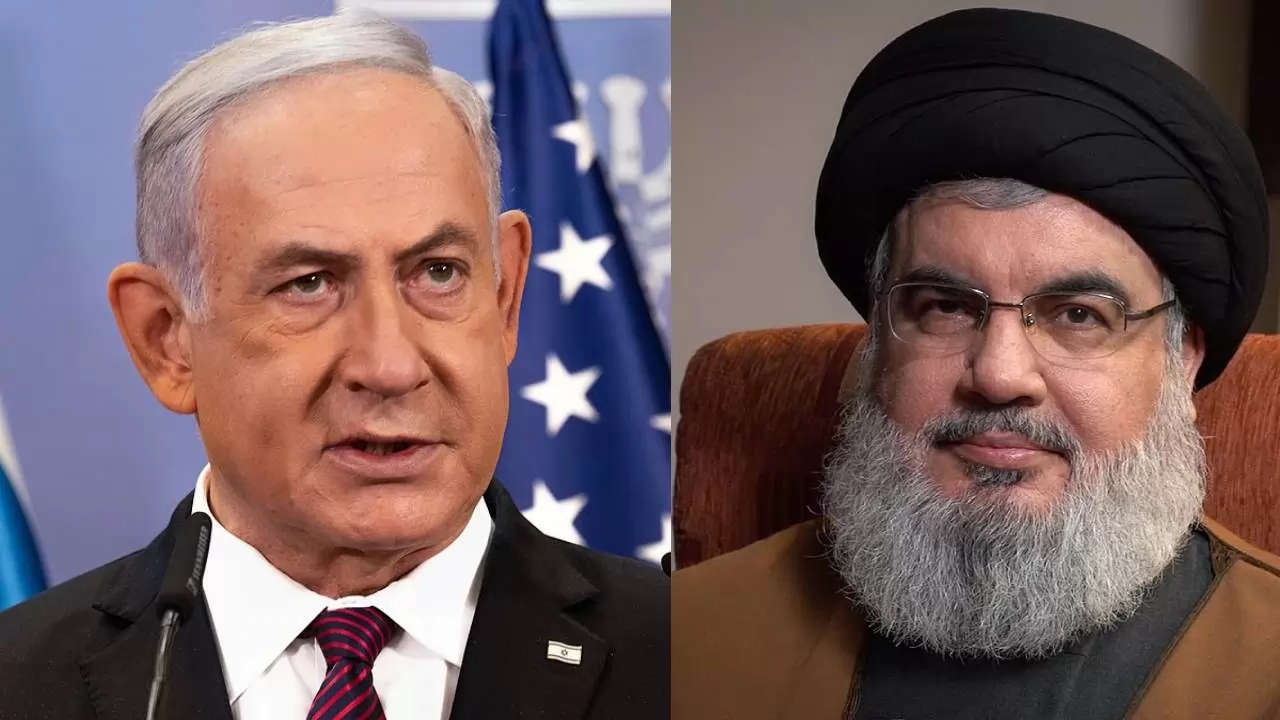
Hasan Nasrallah, PM Benjamin Netanyahu (Wikipedia)
Hezbollah commanders assassination: As the Israeli military intensifies its operations against Hezbollah, the militant group has faced a series of targeted attacks on its top leadership. In an exclusive conversation with a prominent media house, Dr. Ali Hamie, a Hezbollah strategy analyst currently in hiding, shared his perspective on the recent assassinations of the group’s senior commanders and their impact on the organization.
Israel's campaign against Hezbollah's leadership began with the killing of Fuad Shukr, Hezbollah's chief of staff, on July 30. This was followed by the elimination of other high-ranking figures, with the most significant being the assassination of Hassan Nasrallah on September 27. Despite these losses, Dr. Hamie assured that Hezbollah remains unshaken.
Hamie downplayed the significance of these assassinations, stating that the death of older commanders would not weaken Hezbollah's operational strength. "Hezbollah won’t be affected... they were old, and I think it was time for their retirement anyway," Hamie commented, emphasizing that these leaders had already laid the groundwork for their successors, ensuring the continuity of Lebanon’s defense.
Hezbollah's internal structure, according to Hamie, is designed to withstand such crises. The group has implemented a robust system where, in the event of a leader’s death, an emergency commander is ready to assume control. "There are always military circumstances where a commander, and then a commander for emergency, exist," he explained, highlighting the organization’s ability to swiftly transition leadership without affecting operations.
Hezbollah's operational strategy is deeply rooted in the preparedness for leadership losses, Hamie noted. In the event of an assassination, responsibilities are immediately transferred to the next in line, ensuring that Hezbollah’s missions continue without disruption. "In a case of assassination, the responsibilities of the current commander transfer to the next, and they have the same capability," he said, underscoring the group’s resilience.
Hamie also pointed to the rise of younger commanders within Hezbollah, who are better equipped to handle modern warfare, thanks to their expertise in the latest military technologies. "The new commanders in place are younger, and they have more effectiveness with the latest technology," he added. This shift, according to Hamie, offers Hezbollah a strategic edge as it continues its conflict with Israel.
Despite Israel’s efforts to cripple Hezbollah’s leadership, Hamie’s remarks suggest that the group has prepared for such eventualities and remains as formidable as ever.





Copyright © 2025 Top Indian News
